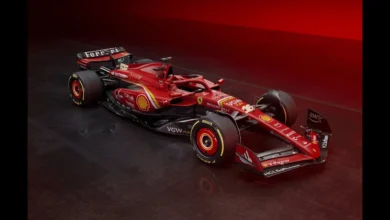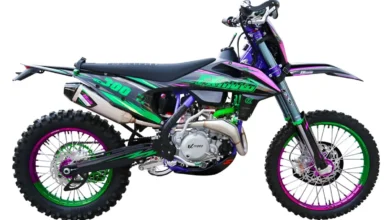The Road Sweeper Truck Revolution: Clean Streets, Clean Future

Urban cleanliness is essential for health, safety, and the overall appearance of any modern city. One of the most valuable tools in achieving this is the road sweeper truck. These machines are more than just street cleaners—they are powerful, complex systems designed to keep communities looking their best while preventing pollution and promoting sustainability.
Whether you’re in charge of municipal operations, a construction company needing post-project cleanup, or simply interested in how cities maintain order and hygiene, learning about the road sweeper truck reveals the vital role these machines play every day.
What Is a Road Sweeper Truck?
A road sweeper truck is a specialized vehicle designed to clean paved surfaces such as roads, parking lots, and industrial sites. These trucks operate using a combination of rotating brushes, vacuum systems, and high-pressure water jets to clear dust, debris, litter, and even hazardous materials.
There are many variations of the road sweeper truck, each built for a particular purpose. Some are compact and ideal for city sidewalks, while others are massive, industrial-grade machines used in highways and airport runways. Regardless of the type, the goal remains the same: efficient, thorough surface cleaning that contributes to a cleaner and safer environment.
In addition to their cleaning capabilities, many road sweeper trucks feature GPS tracking and automation to optimize their performance. These innovations make it easier for municipalities and private companies to manage large fleets efficiently.
How Does a Road Sweeper Truck Work?
Understanding how a road sweeper truck works helps appreciate its value in city and industrial infrastructure. The process typically involves several coordinated steps:
- Side Brushes: These rotary brushes sweep debris from curbs and sidewalks toward the center of the vehicle.
- Main Roller Brush: Positioned underneath the vehicle, this brush sweeps debris onto a conveyor belt or directly into a collection hopper.
- Vacuum Suction: Fine dust and light particles are pulled up through powerful vacuum systems.
- Water Sprayers: Water is sprayed to reduce airborne dust and enhance the efficiency of brushing and suction.
- Debris Hopper: All collected material is stored in a hopper that can be emptied at a designated location.
Modern sweepers may also come with noise-reducing designs and low-emission engines to comply with environmental regulations.
Key Benefits of Using a Road Sweeper Truck
Using a road sweeper truck offers numerous practical and environmental benefits that go far beyond simple aesthetics.
- Public Health Improvements: Sweeping removes allergens, harmful dust particles, and pollutants from road surfaces. This helps reduce respiratory issues and the spread of disease.
- Pollution Control: Street sweepers prevent trash and contaminants from entering storm drains and local waterways, which protects ecosystems.
- Road Safety: Debris like gravel, glass, and leaves can cause traffic accidents. Regular sweeping ensures safer driving conditions.
- Urban Aesthetics: Clean streets reflect a well-managed city, encouraging tourism, improving business reputation, and enhancing residents’ pride.
- Cost Efficiency: Preventing debris buildup can extend the lifespan of road surfaces and reduce long-term maintenance costs.
Overall, investing in a road sweeper truck contributes to sustainable urban planning and cleaner community living.
Types of Road Sweeper Trucks
Different road environments call for different types of road sweeper trucks. Understanding the distinctions helps organizations choose the right equipment for their needs.
Mechanical Broom Sweepers
Mechanical sweepers use rotating brushes and a conveyor belt system to move dirt and larger debris into a hopper. These are often used in heavy-duty applications like construction sites and large event cleanup.
Vacuum Sweepers
These use high-powered suction mechanisms to pick up smaller particles such as dust, sand, and light litter. They’re ideal for residential neighborhoods and urban environments where cleanliness is crucial.
Regenerative Air Sweepers
These trucks blow high-pressure air to dislodge debris and then vacuum it into storage. Regenerative air sweepers are efficient and versatile, making them perfect for mixed-use areas like shopping centers and industrial parks.
Electric and Eco-Friendly Sweepers
Electric road sweepers are gaining popularity for their low noise and zero emissions. They’re perfect for noise-sensitive areas like hospitals, schools, and residential zones, while also aligning with green initiatives.
Choosing the Right Road Sweeper Truck
The selection of the ideal road sweeper truck depends on a few critical factors:
- Operating Environment: Narrow streets may require compact sweepers, while wide roads and highways need larger, more powerful units.
- Budget Constraints: Newer models offer high-tech features but may exceed your budget. Used or refurbished units provide a cost-effective alternative.
- Type of Debris: Are you cleaning leaves and dust or heavier construction debris? Different machines excel at different tasks.
- Emissions and Noise Requirements: Consider regulatory standards and community needs for quieter, cleaner operation.
- Maintenance Accessibility: Ensure parts and service support are easily available in your region.
Making the right choice ensures that you get the maximum return on your investment while maintaining cleanliness effectively.
Maintenance and Operating Tips
Proper maintenance is crucial to extending the life and effectiveness of a road sweeper truck.
- Daily Pre-Check: Inspect tires, hoses, belts, and fluid levels before operation.
- Clean the Hopper: Empty and rinse the debris hopper regularly to avoid odor and corrosion.
- Brush Wear Monitoring: Brushes wear out over time; replace them when they become ineffective.
- Filter Cleaning: Suction and vacuum components rely on clean filters for maximum airflow.
- Engine and Hydraulics: Regular oil changes and hydraulic checks prevent breakdowns and ensure long-term reliability.
Routine operator training and adherence to service schedules are equally important for safe and efficient operation.
Top Brands and Models in 2025
The global market for road sweeper trucks includes several well-established manufacturers:
- Elgin Sweepers – American-made, known for rugged mechanical and air sweepers.
- Tennant – Offers a wide range of battery-operated, eco-friendly models.
- Schwarze Industries – Trusted for heavy-duty sweepers with advanced features.
- Global Environmental Products – Focuses on electric street sweepers with top-tier design.
- Dulevo – Italian manufacturer offering high-end mechanical and hybrid sweepers.
These brands are recognized for innovation, reliability, and ease of maintenance.
Future Trends in Road Sweeper Truck Technology
Technology is rapidly changing how road sweepers are built and used. Here are some future trends to watch:
- Self-Driving Sweepers: Autonomous road sweepers are being tested in smart cities for 24/7 operation with minimal human input.
- Data-Driven Cleaning Routes: GPS tracking and IoT sensors help optimize cleaning routes, saving time and fuel.
- Hybrid & Electric Models: Eco-friendly options are expanding, reducing fuel costs and emissions.
- Remote Diagnostics: Fleet managers can monitor performance and schedule repairs remotely.
- Compact Urban Units: Designed for tight spaces in older cities or pedestrian zones.
These advancements will make road cleaning even more efficient and environmentally responsible.
FAQs About Road Sweeper Trucks
Q: What is a road cleaning truck called?
A: A road cleaning truck is commonly known as a road sweeper truck or street sweeper. The terminology may vary by region, but the purpose remains the same—cleaning paved surfaces.
Q: What is a road sweeper truck?
A: A road sweeper truck is a specialized vehicle that uses mechanical brushes, vacuum suction, and water jets to clean roads, parking areas, and other paved surfaces.
Q: How much does a road sweeper cost?
A: Prices vary based on size, model, and features. A brand-new road sweeper truck can cost between $80,000 to $300,000, while used models may range from $30,000 to $100,000.
Q: How much do road sweepers get paid in the UK?
A: In the UK, road sweepers earn an average salary between £20,000 and £28,000 per year. Experienced operators may earn more, especially when operating specialized equipment.
Q: What is a truck sweep?
A: A truck sweep refers to either the action of cleaning the back of a truck or the equipment used (like a sweeper truck) to remove debris from loading docks, truck beds, or site roads.
Q: Can road sweepers clean during rain?
A: Most road sweepers are designed to function in light rain but may become less effective in heavy rainfall or icy conditions.
Q: Do road sweepers pollute the air?
A: Older diesel models may emit pollutants, but newer electric sweepers are designed to minimize emissions, making them eco-friendly alternatives.
Conclusion
In the pursuit of cleaner cities, safer streets, and a healthier environment, the road sweeper truck plays a pivotal role. Far from being just a utility vehicle, it is a high-tech, environmentally conscious machine that ensures urban environments remain tidy, functional, and livable.
With advancements in automation, electric drivetrains, and intelligent routing systems, road sweeper trucks are becoming smarter, quieter, and greener. Whether you’re considering one for municipal use, construction cleanup, or industrial maintenance, investing in the right road sweeper truck is a step toward a cleaner and more sustainable future.
SEE MORE INFORMATION BY CLICKING HERE: Dailynewsblog




